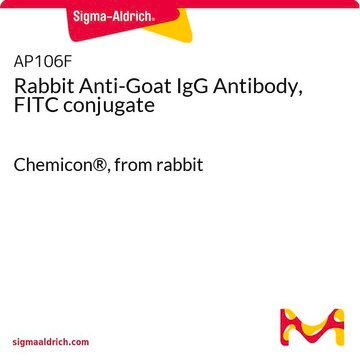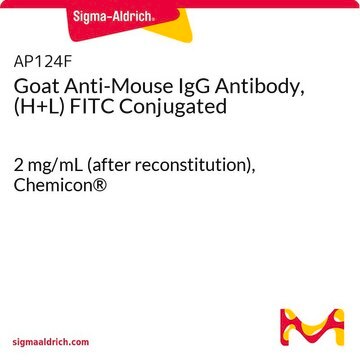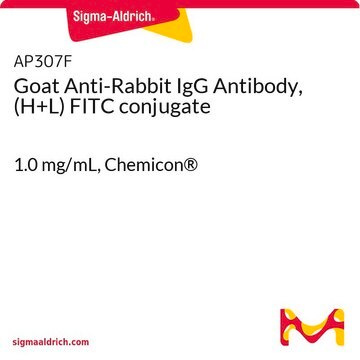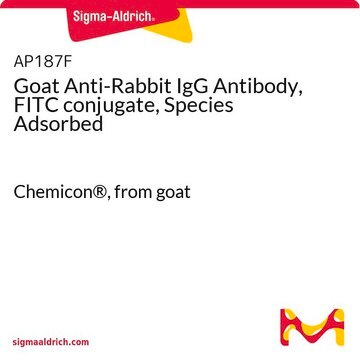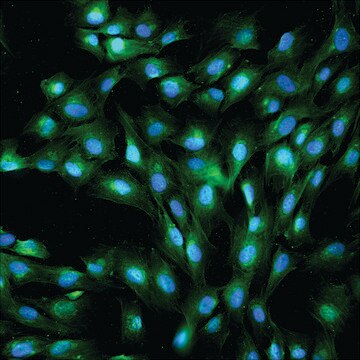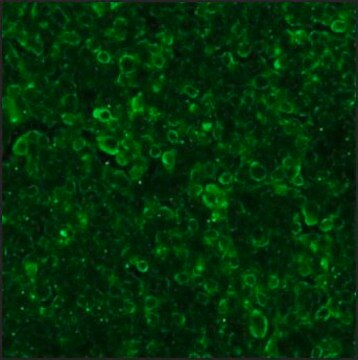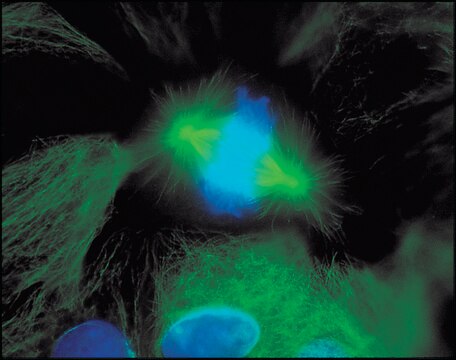AP132F
Goat Anti-Rabbit IgG Antibody, FITC conjugate
2 mg/mL, Chemicon®
About This Item
Recommended Products
biological source
goat
Quality Level
conjugate
FITC conjugate
antibody form
affinity purified immunoglobulin
antibody product type
secondary antibodies
clone
polyclonal
species reactivity
rabbit
manufacturer/tradename
Chemicon®
concentration
2 mg/mL
technique(s)
immunofluorescence: suitable
shipped in
wet ice
target post-translational modification
unmodified
Related Categories
General description
Specificity
FLUOROPHORE/PROTEIN:
Approximately 12 mg/mg.
Application
Physical form
Storage and Stability
Legal Information
Not finding the right product?
Try our Product Selector Tool.
signalword
Warning
hcodes
Hazard Classifications
Acute Tox. 4 Dermal - Acute Tox. 4 Inhalation - Acute Tox. 4 Oral - Aquatic Chronic 3
wgk_germany
WGK 3
flash_point_f
Not applicable
flash_point_c
Not applicable
Certificates of Analysis (COA)
Search for Certificates of Analysis (COA) by entering the products Lot/Batch Number. Lot and Batch Numbers can be found on a product’s label following the words ‘Lot’ or ‘Batch’.
Already Own This Product?
Find documentation for the products that you have recently purchased in the Document Library.
Our team of scientists has experience in all areas of research including Life Science, Material Science, Chemical Synthesis, Chromatography, Analytical and many others.
Contact Technical Service